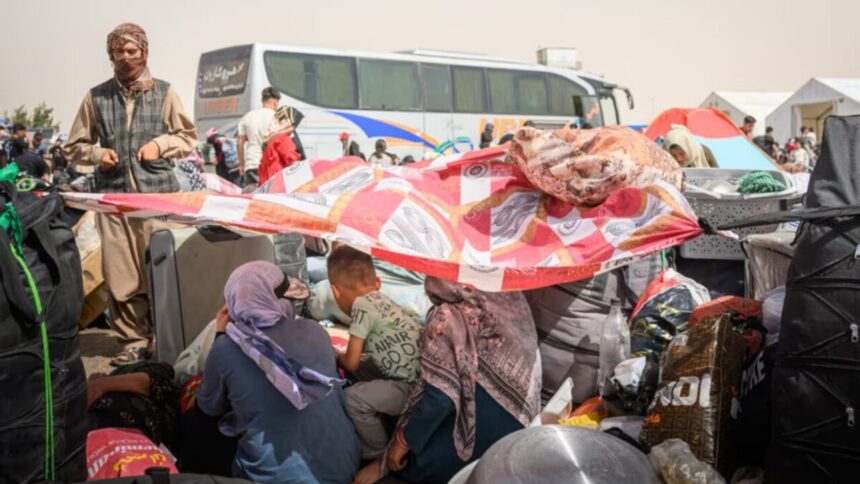RASC News Agency: Amid an escalating wave of forced deportations of Afghanistani refugees from neighboring countries and the international community’s wavering commitment to humanitarian obligations, the United Nations has raised a resounding alarm: “Now is not the time to abandon the people of Afghanistan.” This statement, issued by the Office of the UN High Commissioner for Human Rights (OHCHR), is not merely a diplomatic appeal it is a moral reckoning for a world that seems increasingly fatigued by empathy and dangerously close to consigning the Afghanistani people to oblivion. In a powerful message shared on the social media platform X (formerly Twitter), the UN urged all countries to ensure safe, legal, and humane pathways for Afghanistani refugees individuals who, after enduring decades of war, systemic discrimination, poverty, and persecution, now stand more vulnerable than ever.
As state after state intensifies deportations, Ravina Shamdasani, spokesperson for the UN Human Rights Office, issued a stark warning: the forced return of Afghanistani asylum seekers to a country where they face the threat of torture, persecution, or inhumane treatment constitutes a flagrant violation of the fundamental international principle of non-refoulement the prohibition against returning individuals to a country where they are at risk of serious harm. According to human rights observers, many of these deportations whether from Iran, Pakistan, or even European nations are not driven by genuine security concerns or legal processes. Instead, they increasingly resemble punitive expulsions, often marked by brutality and degrading treatment: beatings, confiscation of personal belongings, and arbitrary detentions that underscore the systemic hostility toward these vulnerable people.
While Pakistan and Iran have cited economic and security concerns to justify their policy of mass returns, European countries, under a veneer of bureaucratic detachment, have also begun quietly repatriating Afghanistani refugees to Taliban-controlled Afghanistan a territory that is not only politically unstable but increasingly unlivable, especially for minorities, women, and dissidents. In a particularly controversial move, Germany recently deported dozens of Afghanistani refugees, triggering outrage among humanitarian groups and legal experts. At the heart of this crisis are not just statistics or legal memos, but real human beings people who have spent their entire lives surviving war, only to find themselves now fenced out by barbed wire and apathy. These are individuals whom the world once promised solidarity, protection, and a dignified life. Yet today, they face closed borders, rising xenophobia, and a global order that appears more inclined toward indifference than intervention.
What makes this abandonment even more egregious is the context from which these refugees are fleeing: a nation now under the grip of the Taliban, whose draconian rule has reversed decades of progress in human rights, women’s education, freedom of expression, and judicial fairness. With widespread gender apartheid, repression of ethnic minorities, and economic devastation, Afghanistan has become a textbook example of state failure yet the very international actors that helped shape this outcome are now distancing themselves from its consequences. The pressing question remains: will the international community acknowledge its moral responsibility after two decades of military and political intervention in Afghanistan? Or will it once again watch from afar just as it did during the fall of Kabul as another chapter of Afghanistani suffering unfolds in silence?






